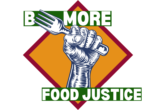Food Apartheid is a term used to describe the systemic inequalities in food access that are often rooted in racism, segregation, and discriminatory economic policies. It is a term that we believe is preferable to Food Desert. When considering a desert ecosystem, it becomes apparent that results from natural circumstances whereby apartheid is legalized racial segregation. The term food apartheid was coined by food activist Karen Washington in the 1980s and is used to highlight how certain communities, especially those with low-income residents and people of color, are systematically denied access to healthy food. The term food apartheid draws attention to the intentional actions and policies that have created and continue to perpetuate structural barriers to adequate nutrition.
Characteristics of food apartheid include:
- Low-income
Areas with a poverty rate of 20% or higher, or a median family income at or below a threshold based on the median income in the region
- Low access
Areas where at least 500 people or at least 33% of the population live more than 1 mile from a supermarket or large grocery store
We utilize the term “food apartheid” is used instead of “food desert” because it better reflects the structural injustices and intersectional root causes of food injustices in Baltimore.
